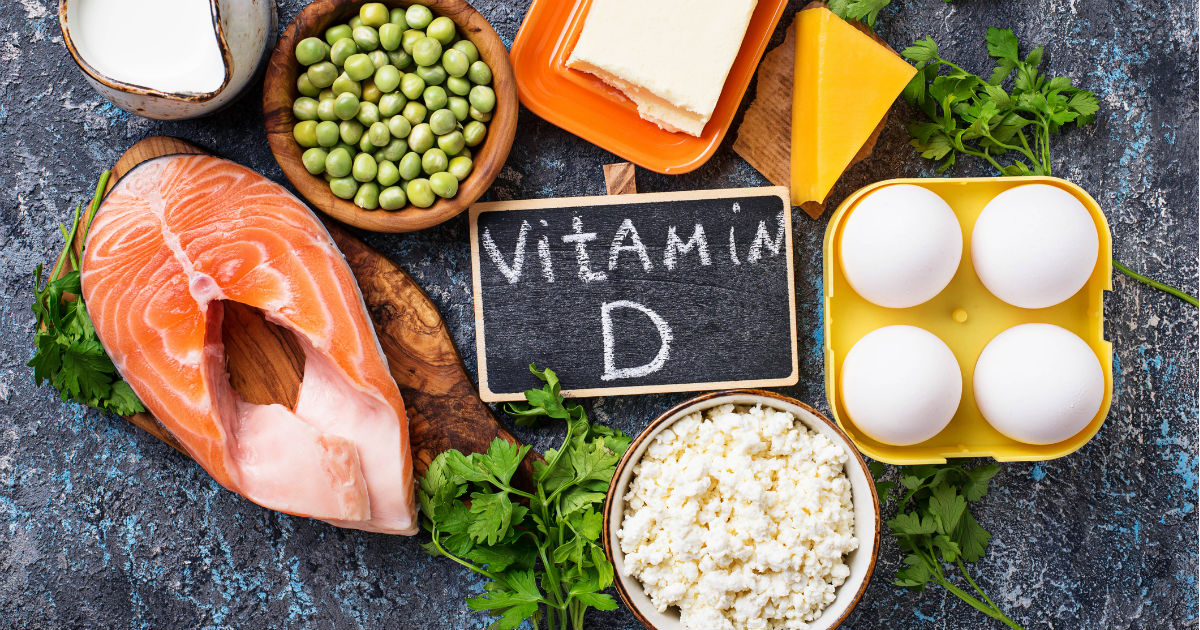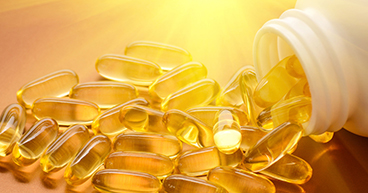
Vitamin D is an important part of a healthy diet. It helps support the immune system and encourages the growth of healthy cells. But research shows that at least 40 percent of the American population is low in vitamin D. And, while the connection between vitamin D and cancer prevention is still unclear, several studies have linked deficiencies in the vitamin with cancer progression and cell behavior. Researchers at Stanford Medical Center, for example, have concluded that breast cancer cells grew faster and were more likely to metastasize in mice with low levels of vitamin D. Another study at Northwestern University suggests that low levels of vitamin D in men being treated for prostate cancer may signify a more aggressive form of cancer.
Adequate levels of vitamin D also help support these important functions:
- Bone health: Vitamin D helps your body absorb calcium and phosphorus, which promote strong bones.
- Muscle function: People with a vitamin D deficiency experience muscle weakness, reduced athletic performance and are at greater risk for falls. Likewise, building up stores of vitamin D has been shown to decrease falls and improve muscle strength and balance.
- Cardiovascular function: Studies indicate that vitamin D may help improve cardiovascular health, especially in overweight patients.
How to know if you’re getting adequate vitamin D
A simple blood test from your doctor can check vitamin D levels. If you’re interested in getting your levels checked, ask for the 25(OH)D test. Experts’ opinions vary regarding recommended ways to incorporate vitamin D into everyday life. It can either be produced by ultraviolet B (UVB) radiation or dietary sources.
The sunshine vitamin
Vitamin D is often known as the “sunshine vitamin” because it’s naturally produced in skin exposed to UVB rays. The amount of vitamin D produced varies depending on many factors, including the time of day, where you live and skin pigment. Some believe that a small amount of time in the sun each day can allow the body to produce enough vitamin D. Experts often recommend 10-15 minutes of sun exposure before or after the peak hours of 10 a.m. to 3 p.m.
While the sun is a good source of vitamin D for many, experts warn against getting too much sun. In fact, many cancer patients should avoid the sun, particularly during treatment, as certain chemotherapy drugs, radiation therapy and targeted therapy drugs can make patients more susceptible to sunburns. Because of the nature of their disease, patients with skin cancer are advised to stay out of the sun altogether.
Although it’s important to be aware of the sun’s benefits, talk with your doctor about the appropriate amount of sun exposure for you.
Foods with vitamin D
The following foods contain vitamin D, and can be incorporated into your everyday diet to increase your intake:
- Milk
- Egg yolks
- Fatty fish, such as salmon, trout, mackerel and tuna
- Dried shitake mushrooms
- Canned tuna fish
- Fortified orange juice
- Some fortified cereals
If sunlight and diet don’t provide adequate levels of vitamin D, or if sun exposure is not recommended for you, supplements may be an option. When incorporating vitamin D into everyday life, it’s important to balance sun exposure, diet and supplementation. Consult with your doctor or oncology team to find the right combination for your needs.


